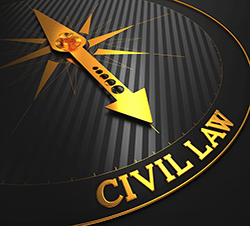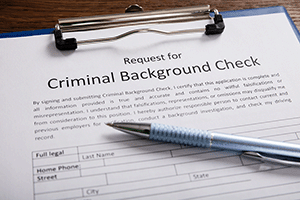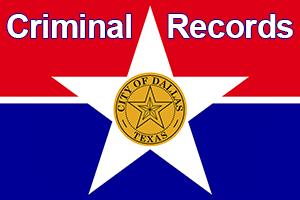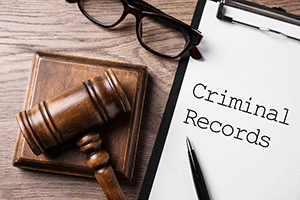Texas Criminal Records Search
Texas criminal records are part of the state's public records system that is accessible by anyone. However, finding these publicly available records can be a bit like trying to find your way through a winding maze. Whether you're a concerned neighbor wanting to run a background check, or a curious citizen, understanding how to access someone's Texas criminal history is key. Let's break down the steps you need to take for a Texas criminal records search and what you need to keep in mind.
Understanding Texas Criminal Records
TX criminal records are official state documents that paint a picture of a person's past interactions with the law. These records include information on arrests, criminal charges, warrants, court cases, and outcomes such as convictions, acquittals, or dismissals. These records are considered public information, meaning they're available to anyone who requests them. However, not all these records are publicly available, some exceptions are for juvenile records and expunged or sealed cases.
What's Included in a TX Criminal Record?
A typical TX criminal record will contain the individual’s full name, date of birth, a thorough list of any arrests and charges, court cases, and any convictions and incarcerations. Fingerprints, and mugshots are also collected during the arrest process are also included to confirm the identity of the person in question.
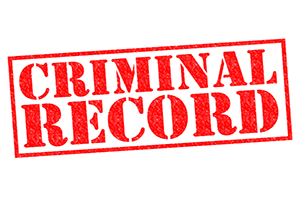
How to Conduct a Texas Criminal Records Search
When you're ready to begin your Texas criminal records search, there are a few options depending on what type of records you are looking for. They are broken down into two main categories, official and unofficial. The official records require permission and sometimes fingerprints or identity verification and can be used for official purposes. The un-official records can be run by anyone but can only be used for reference or research.
Official Texas DPS Requests
The TX Department of Public Safety (DPS) offers an online Criminal History Search. This service allows the public to search for TX criminal history information. This is a user-friendly service that provides quick access to records for a fee. These requests follow the FCRA guidelines for making these requests, as well as state regulations.
For those who prefer a more traditional method, these records can be requested by mail. To obtain records with this method, people will need to complete the relevant forms and and mail them in, along with the required fee. The caveat to this method is it takes a bit longer, and if there are any discrepancies with the forms, it will take even longer.
Unofficial Third-Party Requests
If you only need to obtain a person's Texas criminal history for unofficial purposes, there are some inexpensive and easy to access resources. Through third-party public record websites, anyone can research a person's criminal history, and compete public record. These resources can be used by anyone, and these sites usually only require a first and last name to search. It is important to remember however, that these resources are to be used for unofficial reference and research purposes only. They cannot be use for applications, employment, security clearances, or any other official reasons.
What is Included with a Texas Criminal History Check
A person's criminal history check is an important component of a background check. Whether it is performed for official or unofficial reasons, these reports show basically the same information. Here is a list of what you can expect when running one of these checks:
1). Criminal History Reports
2). Court Case Records
3). Convictions and Sentencings
4). Arrests and Police Reports
5). Active Arrest Warrants
6). Incarcerations, Prison and Jail Records
7). Parole and Probation Orders
8). Traffic Citations and DUIs
9). Felonies, Misdemeanors and Infractions
For the most part, these are all publicly available to anyone upon request. It is important to make sure you know what resources to access these records for, depending on your intent to use them. You must also ensure that your usage of any information you obtain is used within the guidelines of state and federal laws and regulations.
Texas Criminal Convictions Search
Criminal convictions are any crime where a person has been found guilty in a court of law. These can range from felonies, and misdemeanors, to traffic violations and criminal infractions. To run a TX criminal conviction search you only need to know the name of the person you want to lookup. Since convictions are considered public records, it means that anyone can view them without needing permission. There are a couple of ways to go about this. First, you can run a criminal history check with the Texas DPS, this will cost a few bucks but will give you a detailed breakdown of someone's convictions from the last 7 years. Another option is to use a public records site, which allow you to lookup conviction records anonymously.
What Are the Penalties for a Texas Criminal Trespass Charge?
If you, or someone you know has been charged with criminal trespassing, you can be charged with a misdemeanor, and possibly a felony. The basis of these charges are from someone who is entering private property without permission. The type of charges really depend on the circumstances. If you are convicted of trespassing then you may just have to pay fines and perform some restitution. However, if you are convicted of a felony then you may do some jail time. Here is a breakdown of TX trespassing criminal charges:
1). Class B Misdemeanor: Trespassing on private property which can carry some jail time, and up to a $2000 fine
2). Class A Misdemeanor: If the trespassing includes breaking an entry, such as into a private residence, then the penalty can be up to a year in jail and a $4000 fine
3). Felony: This usually applies for someone that has repeat offenses of trespassing, or if there is also criminal intent such as burglary. This is more serious and can include prison time up to 2 years, and a $10,000 fine




